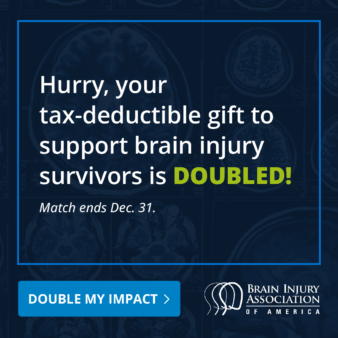Concussion Information Center Chapter VIII: Follow-up Care for Concussion
Categories: Living with Brain Injury, Being a Caregiver
After a concussion, there is no circumstance when somebody should return to an activity where suffering a new concussion is a significant risk. Although walking around the block can result in a fall and a concussion, there is not a high likelihood of that happening. In contrast, playing soccer, even in the park, is a much more significant risk and should be avoided while the student is still experiencing symptoms. Other things like riding a bike or skateboard or climbing trees are also activities to be avoided while still recovering. After seeing a healthcare professional additional care is rarely needed. However, if concussion symptoms do not begin to subside after 2-3 weeks, or they seem to worsen, then additional care should be considered. In most cases this involves education, monitoring and additional treatment.
Important Take-Away Points
- After sustaining a concussion it is very important to avoid any activity that places the student at risk of sustaining another concussion.
- The majority of concussions will resolve without requiring additional treatment beyond cognitive and physical rest.
- Some concussions may need additional treatment. Specialists can address specific symptoms and needs.
- 2-3 weeks is a good time frame to seek additional follow-up care if symptoms have not resolved. Your Primary Care Provider can provide direction on the most appropriate specialists to address your student’s needs.
- In a small percentage of students symptoms may persist beyond the usual 2-3 week period of recovery. In these cases a specialist should consider a diagnosis of post-concussion syndrome (PCS).
It is important that follow-up care be provided by healthcare professionals that have concussion training. If symptoms from concussion are not resolving after two or three weeks then a physician should consider identifying specialists to support ongoing recovery. Your primary care provider can direct you to the most appropriate specialist to address your needs. Watch the following video for a list of physicians who are able to provide specific support for recovery from concussion.
Allied health professionals are also available to support recovery after concussion. These professionals include occupational therapists, physical therapists, speech and language pathologists, psychologists, and social workers. Allied health professions are selected by a physician based on their skills to address specific symptoms and problems. Each one needs to be trained to treat the symptoms of concussion. Additionally, there are a number of specialists who address a variety of specific symptoms that may be related to the concussion. Watch the following video for a list of professionals, and listen carefully to match symptoms that your student may be experiencing.
Information to verify a physician specialist can be found at http://www.abms.org/member-boards/specialty-subspecialty-certificates/
Concussion/mTBI Information Center Series Contributors
Julie M. Buxton, MS, OTR/L is an occupational therapist with 30 years of experience in the field of brain injury, specializing in pediatric brain injury for the past 28 years. She has co-authored two clinical workbooks in brain injury rehabilitation, and presented nationally and internationally. She is currently an Early Intervention Specialist for York and Adams County, Pa.
Rita Cola Carroll, Ph.D., CPCRT, CBIST has worked in the field of Cognitive Rehabilitation for over 30 years, initially in an acute rehab setting, and for the last 26 years as President of Main Line Rehabilitation Associates. At Main Line she has been responsible for clinical program development for community based services, the development of supports and training for staff, and the coordination of individualized, evidence based rehabilitation services for individuals with brain injuries or other neurological diagnoses.
Todd J. Levy, MS, OTR/L, CBIST is a senior occupational therapist at The Children’s Hospital of Philadelphia where his efforts include direct clinical care, program development, training, and research. Mr. Levy’s interests include pediatric stroke and traumatic brain injuries, including post concussion syndrome. Mr. Levy has worked with children with brain injury and their caregivers from the acute care and inpatient rehabilitation settings, to outpatient and school settings.
Drew Nagele, PsyD., CBIST is a neuropsychologist by training and has over 30 years experience in working with people who have neurological disorders. Dr. Nagele’s work has been in the area of brain injury rehabilitation, developing and running programs to help people get back to school, back to work, or back to other productive daily activities after sustaining any kind of incident that affects the brain.
Cindy Pahr, M.Ed. has 30 years of experience working in special education. She is the Brain Injury Services Coordinator for San Diego Unified School District, and educational consultant and founder of EduCLIME, LLC. Cindy conducts training and consultation on brain injury strategies for school staff and families and teaches children recovering from brain injuries. Her emphasis is on recovery and adapting to changes post-injury.
Eric Spier, MD, BIM, CBIS serves as medical director for the Mentis Neuro Rehabilitation El Paso program. In addition to his duties overseeing patient treatment for Mentis, Dr. Spier serves as medical director for acquired brain injury at Highlands Regional Rehabilitation Hospital and runs a private practice.
| Video Development | Photography | Actors | Music | ||||||
|---|---|---|---|---|---|---|---|---|---|
| Samuel Hall Todd J. Levy | Brandon Royal | Parent: Christine Callsen Teacher: Andrew Keller Student: Georgia Mae Lively | Paul Folkert |

